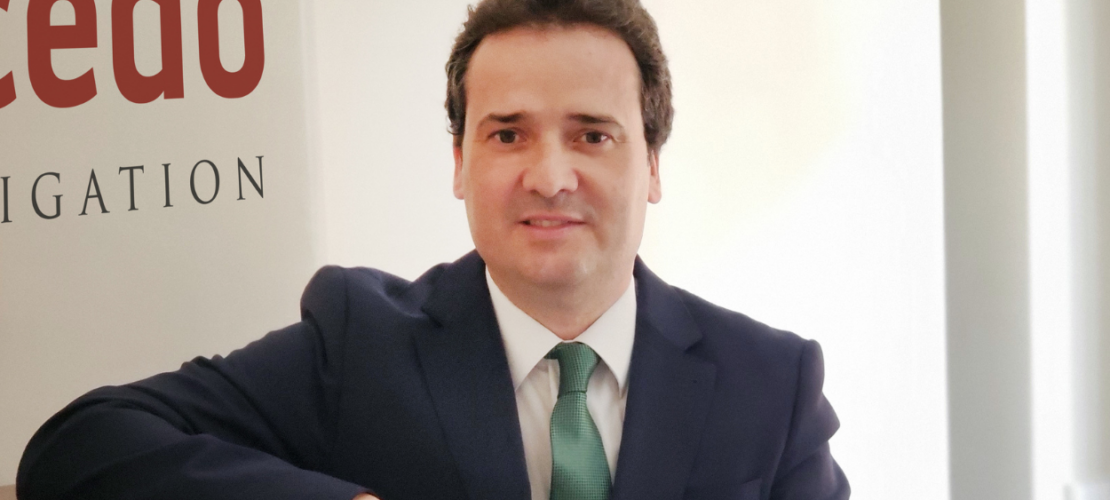The day-to-day work of Heineken Spain’s legal department
We have a legal team that is very difficult to beat. So says Heineken Spain’s legal director, Ignacio Mendoza (pictured). After more than six years of developing his professional career at Coca Cola, he joined the brewing company where he leads five professionals who are part of the firm’s in-house legal department. According to the in-house lawyer in dialogue with Iberian Lawyer, the legal department of Heineken Spain is very powerful, very dynamic and is clearly focused on the business and the achievement of the company’s strategy. Proud of his team, Ignacio Mendoza maintains that combining different profiles with different backgrounds within the same group of people is the key to success.
What is your main activity as in-house lawyer for Heineken Spain?
The main activity of an in-house lawyer is legal advice and in my case it is no different, although the functions of an in-house lawyer go much further. In-house lawyers must advise their internal clients so that they have the right tools to carry out their functions, but they must also raise awareness so that it is more of a preventive than a reactive function, they must carry out a risk assessment so that the decisions taken are as controlled as possible, They must adapt their language so that the people in the business understand the implications, align themselves with the function and feel more identified with it and, above all, they must know the business in depth so that the in-house lawyer is an active part in drawing up the strategy, taking into account all the implications. On that basis, as far as I am concerned, management occupies a fundamental part of my time, both in terms of the department and the people who work in it, as well as in defining the challenges, priorities and where we want to go as a law firm.
How important is the legal department within the company?
Within Heineken España, as in any other company of a certain size, the legal department plays a key role. This is because the legal departments end up having a very transversal vision of the business, advising all the departments of the company and in the vast majority of decisions. In this way, the members of the legal department end up having a global vision of the company and of all the projects that are underway, so that it is easier to help in drawing up the strategy, selecting priorities and sometimes even coordinating the business and helping it to align when there are projects or decisions in one department that may have implications for another. In short, legal departments should not only be limited to advising but should also be an active part of the strategy and participate in it. Thus, in Heineken Spain, we are lucky, thanks to the generosity of the Directors of each of the different departments of the company, to always have at least one member of the team in the regular meetings of the first executive line of each department, so that when relevant decisions are taken for the business, there is a lawyer from the very first moment of the decision, helping the teams to understand the implications of their decisions and to adapt the path if necessary to reach them.
What are the characteristics or particularities of the legal department?
The main particularity of the legal department is that, unlike a law firm, for example, excellence in legal advice is important but it is not such a fundamental pillar on which everything must be based. Of course, legal advice must be excellent, but there are more variables that come into play here. There is an important part of management, given that sometimes the support of external firms is needed to carry out the tasks; there is a fundamental part of risk assessment and decision making, so that this assessment is as realistic as possible and not as protectionist as possible or else the business, which after all are your clients, will see you more as an enemy than an ally; there is another part that is interpretative and even imaginative at times in terms of regulatory changes and interpretations of the rules; and then there is a very important part of language adaptation. We must bear in mind that on a day-today basis, corporate lawyers work with non-legal profiles, so it is not reasonable to think that you can speak in the same way to a colleague from a law firm as to a commercial profile, just as we would not speak to an English person in Spanish if we know that he or she does not understand the language. Finally, it is essential to know the business in depth. Otherwise, it would be impossible to know the implications of the changes we sometimes ask to make and it would be a source of constant confrontation. Therefore, before proposing options and discussing them with the business, it is essential to discard those that, due to the idiosyncrasies of the business, do not make sense, and thus avoid frustration and confrontation on all sides.
CLICK HERE TO DOWNLOAD THE MAGAZINE AND CONTINUE READING THE ARTICLE












